Welcome to CCGrid 2012!
The CCGrid symposium series serves as a major international forum for presenting and sharing recent research accomplishments and technological
developments in the field of Cluster, Cloud and Grid computing. The symposium is popular among researchers and practitioners from both industry and
academia. The first CCGrid Symposium started in Brisbane, Australia, in 2001. Since then, the conference has successfully been hosted around the
world. The conferences from 2002 to 2011 were held in Germany, Japan, USA, UK, Singapore, Brazil, France, China, Australia, and USA, respectively.
This year, the 12th International Symposium is going to be held in Ottawa, Canada. The symposium is sponsored by IEEE and ACM (approval pending).
2012 IEEE Award for Excellence in Scalable Computing
Presentation Note: Only LCD projectors will be available at the meeting rooms. Presenters need to bring their own laptops.
Keynote Speakers
1. Discovering Knowledge from Massive Social Networks and Science Data – Next Frontier for HPC
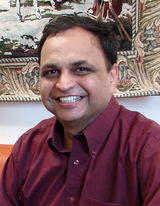
Knowledge discovery in science and engineering has been driven by theory, experiments and more recently by large-scale simulations suing high-performance computers. Modern experiments and simulations involving satellites, telescopes, high-throughput instruments, imaging devices, sensor networks, accelerators, and supercomputers yield massive amounts of data. At the same time, the world, including social communities is creating massive amounts of data at an astonishing pace. Just consider Facebook, Google, Articles, Papers, Images, Videos and others. But, even more complex is the network that connects the creators of data. There is knowledge to be discovered in both. This represents a significant and interesting challenge for HPC and opens opportunities for accelerating knowledge discovery. Read more →
2. Assertion Based Parallel Debugging: A new way of thinking?
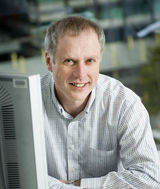
Programming languages have advanced tremendously over the years, but program debuggers have hardly changed. Sequential debuggers do little more than allow a user to control the flow of a program and examine its state. Parallel ones support the same operations on multiple processes, and are adequate with a small number of cores, but become unwieldy and ineffective on very large machines. Typical scientific codes have enormous multi-dimensional data structures and it is impractical to expect a user to view the data using traditional display techniques. Read more →
3. Twenty Years of Grid Scheduling Research and Beyond
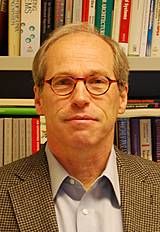
Exactly twenty years ago, we started our grid scheduling research in Delft with the design and implementation of the Condor flocking mechanism for load sharing across Condor pools. Over the last ten years we have designed and deployed the KOALA grid scheduler, which has served as our research vehicle for a large variety of research in grid scheduling. These are only two examples showing that in general, grids have been a present from heaven for researchers in resource management and scheduling in large-scale distributed systems. In this talk I will first look back: What have we learned from our past research in resource management and scheduling, and what is the value of this research in the first place? Read more →
Industrial Session Speakers
1. Small / Medium Enterprises driving innovation On cloud 9
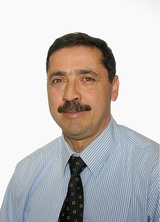
Ali El-Haraki
Senior Architect
CTO team at TELUS Technology Strategy
TELUS Communications Inc., Canada
The focus of vendors and service providers alike on wireless infrastructures to serve the masses with wireless high speed data trunks, converged infrastructure, more speed more bandwidth, more virtualization and the convergence of consumer and enterprise services have changed the business mode, and opened the doors to improve connectivity, commoditization of technology and helped to transform the SME into a service provider with a global reach:
What does this mean to a typical SME? What does this mean to a service provider? And what would be the role of SME in the new eco system? Read more →
2. Data Center Network Infrastructure
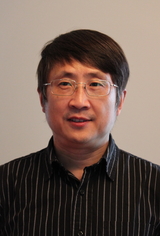
Guoli Yin
Network architect
Huawei Technolgies
With more and more dynamic services provided by cloud, network faces a lot of challenges with capacities, physical interfaces, network virtualization architecture, dynamical networking services with virtualized network resources, ..., etc. Here is the data center network infrastructure of Huawei to solve the problems. Read more →
Conference Scope
Topics of interest include, but are not limited to:
- Paradigms and Technologies: System architectures, Design and deployment; Programming models, language, systems and
tools/environments; Virtualization; Middleware technologies; Volunteer Computing.
- Service-Orientation: Service oriented architectures; Utility computing models; *aaS paradigm; Service composition and orchestration
- Greening: Environment friendly computing ecosystems; Hardware/software/application energy efficiency; Power and cooling;
Thermal/power awareness
- Autonomic Management: Self-* behaviors, models and technologies; Autonomic paradigms and approaches (control-based, bio-inspired,
emergent, etc.); Bio-inspired approaches to management; SLA definition and enforcement;
- Economic Aspects: Utility models and computing economies; Economic-based models and approaches.
- Monitoring and Evaluation: Performance models; Monitoring and evaluation tools, Analysis of system/application performance;
Benchmarks and testbeds.
- Security and Trust: Cloud/Grid security and trust; Access control; Data privacy and integrity; Regulation.
- Applications and Experiences: Applications to real and complex problems in science, engineering, business and society; User studies;
Experiences with large-scale deployments systems or applications.
Important Dates
| Papers Due: |
25 November 2011 → extended to 2 December 2011
(midnight Anywhere on Earth) |
| Notification of Acceptance: |
30 January 2012 |
| Camera Ready Papers Due: |
9 March 2012 |
|



















